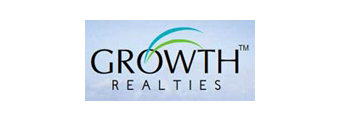Geographical Indications (GI) are one of the seven categories of IPRs recognized for protection under the TRIPS Agreement, which is a part of the WTO Agreement. India being a signatory to the WTO Agreement is obliged to provide certain minimum standards of protection to GIs and has subsequently enacted the Geographical Indications of Goods (Registration and Protection) Act, 1999 which came into effect on 15th September, 2003.The Act is administered by the Geographical Indications Registry located at Chennai with jurisdiction all over India. The Act also provides for a GI Register with two parts –part A and part B. Part A has details of registered GIs and part B has details of authorized users of GI. A Geographical Indication should be protected in the country of origin to claim reciprocal protection in the member states of TRIPS.

Geographical Indications are defined as indications or signs which identify a good as originating in a particular geographical region, where a given quality, reputation or other characteristic of the good is essentially attributable to its geographical origin. GIs are collective rights used by the producers of a particular product in a particular geographical region covered by a particular GI. They may be used on natural, agricultural or manufactured products. Some examples of GIs are Darjeeling Tea, Champagne, Roquefort cheese, Tirupathiladdoo and HyderabadiHaleem. GIs need not be only geographical names of a region but can also include symbols that indicate the origin of goods without literally naming the geographic region (For example, Basmati).Geographical Indications are valuable commercial assets and hence open to unfair practices and misappropriation. Most of the GIs have appreciable export potential. Thus protection of GIs at the national and international level is mandatory.
Application for GI registration in India can be submitted at the GI Registry by any association of persons, producers, organization or authority established by or under the law representing the interest of the producers. The applicant may be represented by an authorized agent. The application should be accompanied with prescribed fees and a Statement of Case. After examination, if there is any objection the applicant can amend the application or apply for a hearing. If the application is accepted, it is then published in the GI journal within three months of acceptance and is open for opposition. An opposition should be made within three months of the publication of the application. If the opposition is quashed, then the GI is registered in the GI register. The term of GI protection in India is ten years and can be renewed. GI rights are public property rights and cannot be assigned, transmitted or mortgaged.Registration of GIs under the GI Act in India is not compulsory but registration offers better protection wherein the registered users can initiate a suit for infringement. As of January, 2013, there are 178 registered GIs in India and most of them are handicraft goods.
Dejure chambers provide comprehensive services for protection of GI. We assist our clients in filing and prosecution of applications for GI registration, opposition proceedings, infringement proceedings and passing off actions.








































